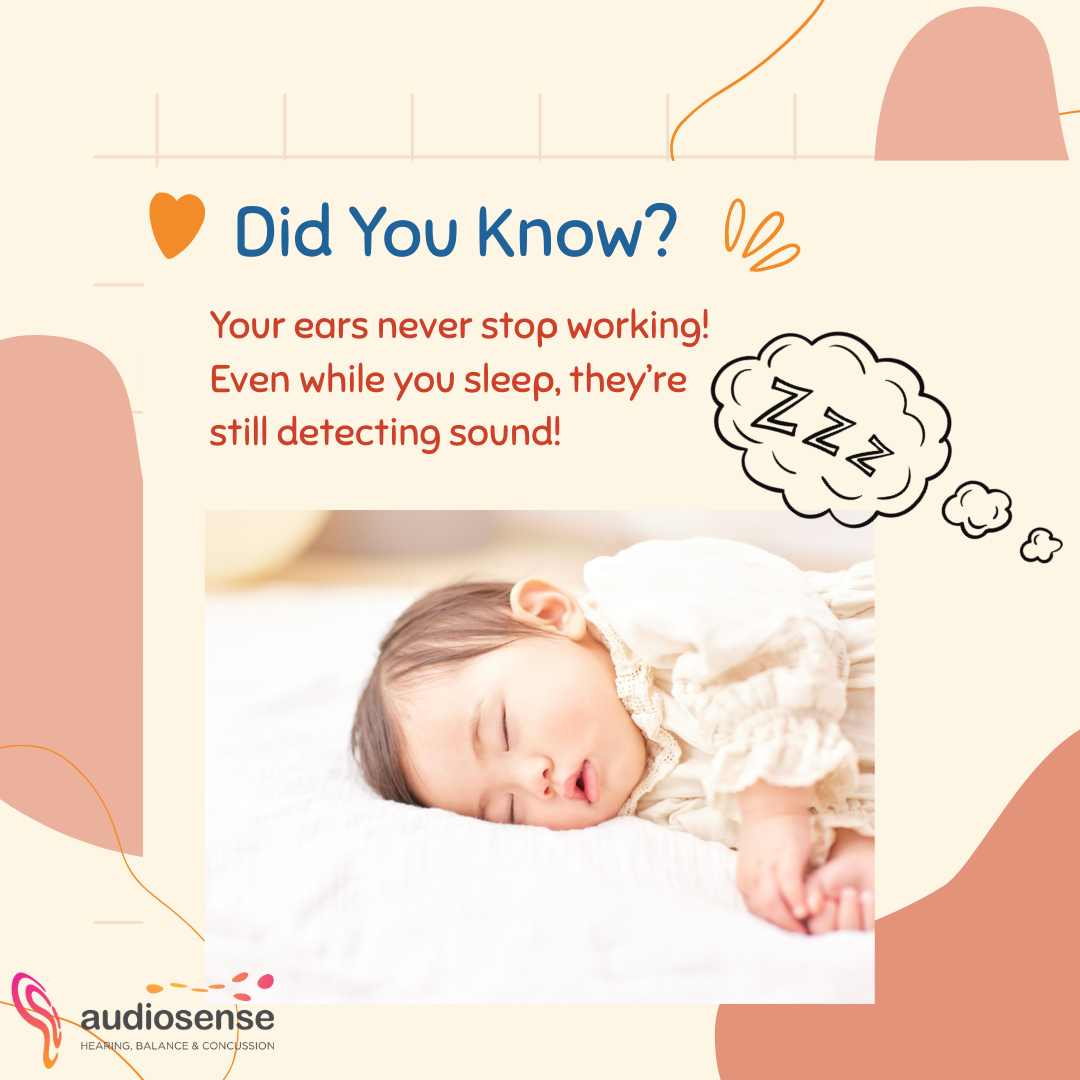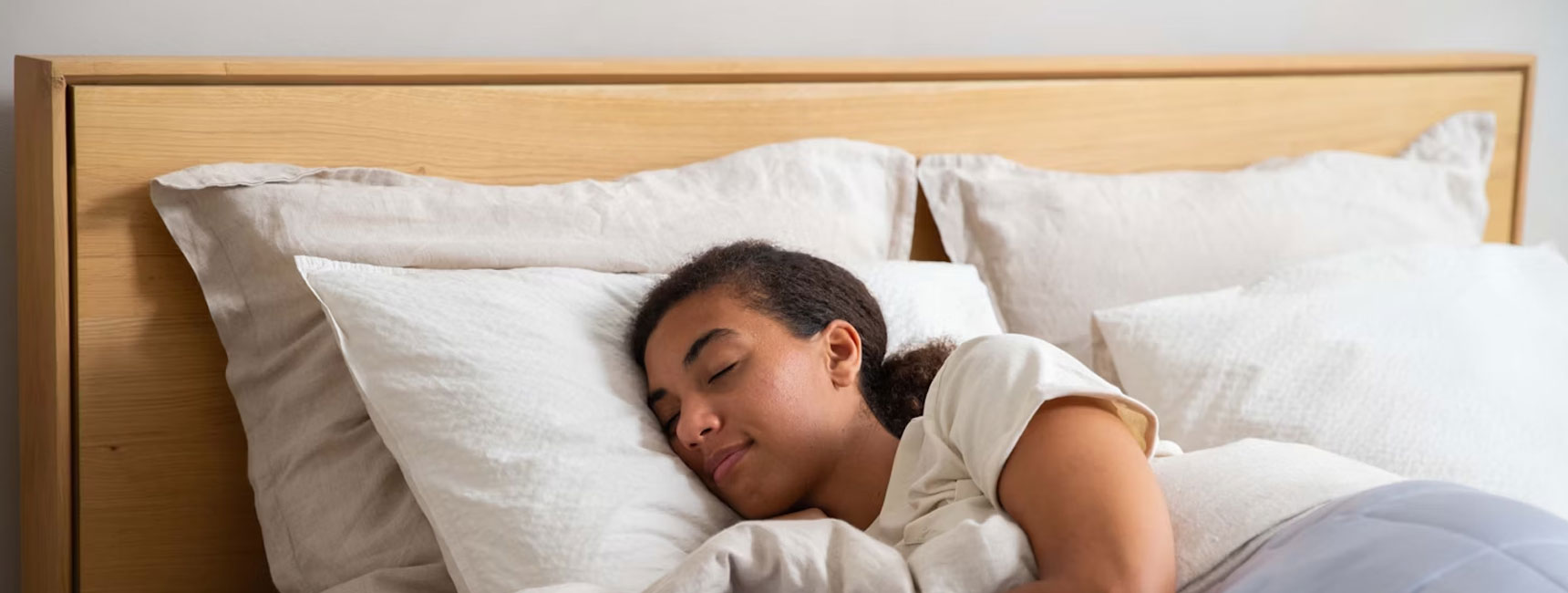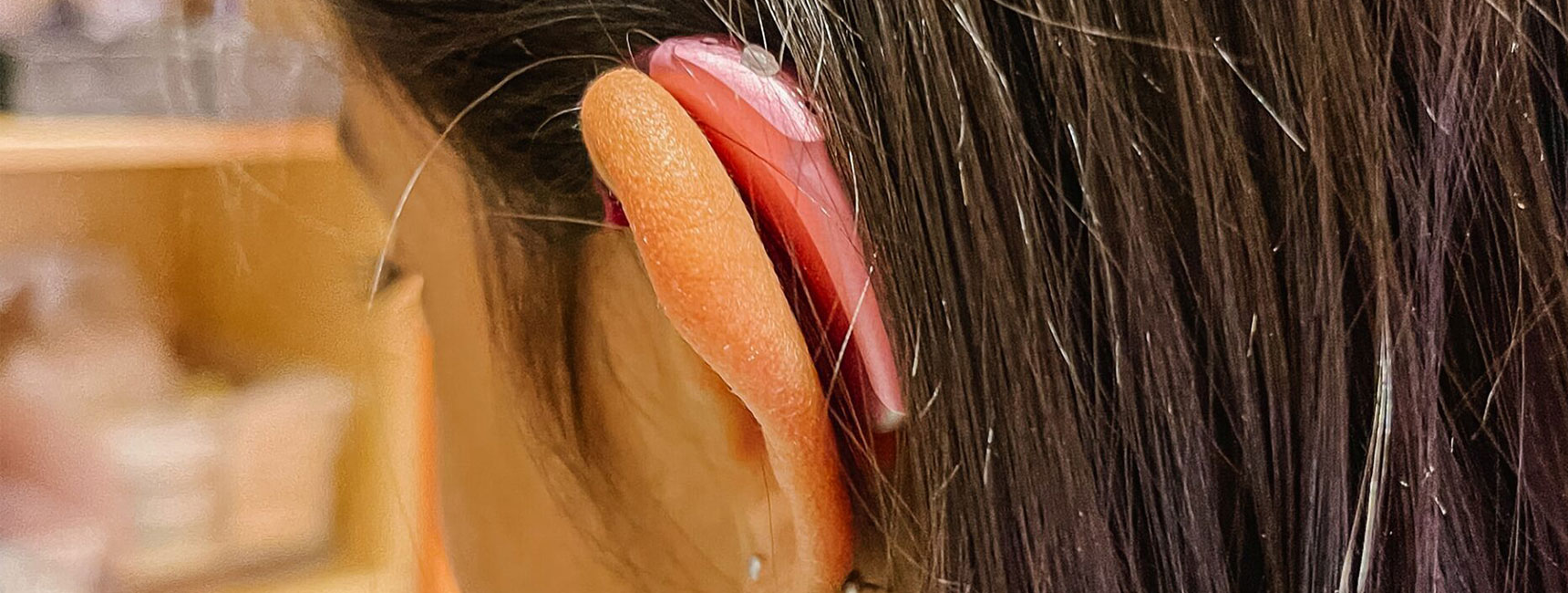
When most of us picture sleep, we imagine the world going quiet; eyes closed, body at rest, mind drifting off. But there’s one part of us that doesn’t fully shut down when we sleep: our hearing.
The auditory system is always awake. Even when we’re in deep sleep, our ears are busy collecting sound and our brain is quietly monitoring our surroundings. This isn’t a flaw in the system; it’s a beautifully evolved safety mechanism. Long before alarm clocks and security systems, the ability to hear danger approaching — an animal, a storm, or a footstep — meant survival. That’s why a sudden noise can snap us awake in the middle of the night. The outer and middle ear continue capturing sound waves, the inner ear (cochlea) translates those vibrations into electrical signals, and our brainstem remains on guard, sorting through what matters and what doesn’t. Most familiar or gentle sounds such as the hum of a fan or soft rain outside are filtered out and ignored by the brain so that we can rest. But if there is anything unusual? Our brain flags it and wakes us up. Even in deep sleep, the brain is listening just enough to keep us safe. That’s why parents wake at the faintest cry and why an unfamiliar bump in the night can snap us awake before we know what’s happening. It’s an elegant survival design — but it also means our ears are working hard around the clock.
Night Noise, Sleep Quality, and Hearing
This constant vigilance is remarkable, but it also has consequences. If you live in a noisy area, near traffic, trains, or nightlife, for example, your ears and brain are processing that sound while you sleep, even if you think you’ve “gotten used to it.” Over time, that relentless background activity can affect not only your hearing but also the quality of your rest. That effort can contribute to lighter sleep or more frequent awakenings. Over months and years, the combination of environmental noise and daytime exposure adds up for your hearing health. A quieter bedroom helps. If you can’t control outside noise, consider adding sound absorbing tiles or acoustic drapes, carpeting on the floor and canvas on the walls can go a long way towards dampening external noises.
Tinnitus and Sleep
For people with tinnitus, nights can be especially challenging. People with tinnitus often struggle to rest because the brain can’t simply “tune out” the ringing. Tinnitus — the internal ringing, buzzing, or hissing that isn’t coming from the environment — doesn’t shut off at night. Because the auditory system never powers down, that sound remains present and can make it harder to fall asleep or stay asleep. Many patients describe lying awake, aware of every little ring or buzz, no matter how much they try to tune it out.
The good news: support is available. Sound therapy, hearing technology with tinnitus features, and strategies that target stress and sleep can reduce the impact of tinnitus at night. An assessment can help you understand what’s driving your symptoms and which options are likely to help.
After Concussion or Head Injury
For people recovering from concussion or other head injuries, caring for the auditory system is even more important. The brain and ears can become more sensitive after trauma, making sleep disruption, tinnitus, and sound intolerance worse. That’s why specialized care in the form of Gentle, targeted rehabilitation for hearing and sound tolerance can make a meaningful difference both for comfort and recovery.
Why Early Care Matters
Ears work hard around the clock to protect and alert us, but they don’t regenerate or repair themselves the many other tissues do at night. The delicate hair cells of the inner ear which are responsible for translating sound into neural signals, don’t regenerate once damaged. That’s why protecting hearing and paying attention to early warning signs matters so much.
For me as an audiologist, that reality underscores how important it is to take care of our hearing not just during the day, but always. If our ears never sleep, it’s worth making sure they’re safe around the clock. Nighttime noise exposure adds up, even if we’re not fully conscious of it. And while hearing changes can seem subtle at first, catching them early makes a meaningful difference in how well we can preserve and protect what we have.
Our ears are extraordinary. They’re always listening, always protecting, always keeping us connected, even when we’re fast asleep. But that constant work comes with responsibility.
Protect them, pay attention when something feels off, and seek help when you need it. They’re not just ears, they’re your connection to safety, communication, and joy.
Book your hearing evaluation
Or fill out the form below and our audiology team can call you to arrange a convenient time for your evaluation.



.jpg)








